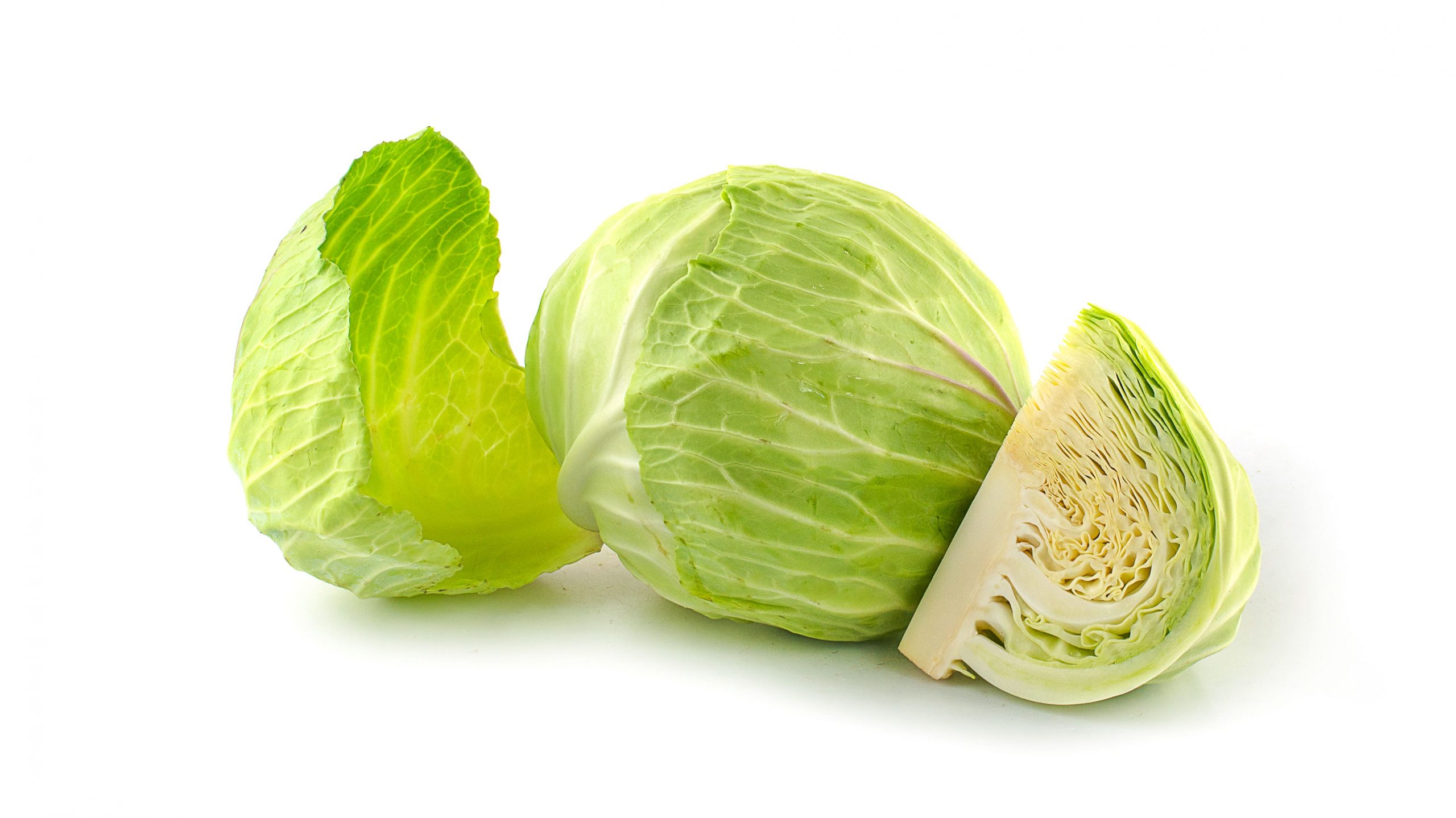Botanically, cabbage falls under the family of cruciferous vegetables grouped with lettuce, kales, broccoli, and cauliflower. This nutritious vegetable can be eaten raw or cooked, alone or alongside other foods.
It’s high time you considered cabbage and cruciferous vegetables a perfect start of a healthy diet, especially if you are after improving your diet. Varying in color, cabbage can be red, white, green, or purple with crinkled or smooth leaves. It is loaded with several beneficial nutrients and can help reduce the risk of heart disease and cancer. Just half a cup of cooked cabbage offers about 20 calories. Consider this article a tool to learning the health benefits of cabbages.
Has an Impressive Nutrition Profile
As it may appear to have low-calorie content, cabbages are loaded with beneficial nutrients. In fact, as per the datasheet on Science Direct, 89 of raw green cabbage is loaded with 22 calories, 1 g of protein, 2 g of fiber, 85% of the recommended daily value (RDV) for vitamin K, 54% of the RDV for vitamin C, 10% of the RDV for folate, 7% of the RDV for manganese, 6% of the RDV for vitamin B6, 4% of the RDV for calcium, 4% of the RDV for potassium, 3% of the RDV for magnesium.
On the other hand, the United States Department of Agriculture (USDA) National Nutrient Database states that 75 g of shredded cooked cabbage contains 17 calories, 4 g of carbs, and 1 g of protein. Additionally, cabbage contains vitamin A, riboflavin, iron, and other essential micronutrients. Since cabbage is high in folate and vitamin B6, it can help boost metabolism for energy and improve the functionality of the nervous system.
May Reduce Inflammation
Inflammation is a normal response that your body uses to keep itself immune to infections and diseases. Inflammation also promotes and speeds up the healing process. However, if inflammation can take place over a long period, it can result in diseases rheumatoid arthritis, heart disease, inflammatory bowel disease, and other chronic illnesses.
Cabbage and cruciferous vegetables have been shown to have various powerful antioxidants that can effectively reduce inflammation. If you have chronic inflammation, you may need to increase your intake of cabbage. This anti-inflammatory property of cabbage is owed to kaempferol, sulforaphane, and other antioxidants.
Cabbage Is An Excellent Source of Vitamin C
Vitamin C is a powerful antioxidant. It is also referred to as ascorbic acid and can only be absorbed in the presence of water. This vitamin has been shown to have vital functions in the body. One area it is used is in the formation of collagen, which is the most abundant protein in your body. It is collagen that gives your skin its structure and elasticity, helps in bone functioning and blood vessels and muscles. Another function of vitamin C is aiding the absorption of non-heme iron. This type of iron is found in plant foods.
Besides, vitamin C serves as an antioxidant, and studies have shown that it can help prevent and fight cancer. Antioxidants protect the body from damages caused by free radicals. If free radicals outnumber antioxidants, your body gets states of oxidative stress, which may lead to chronic illnesses such as cancer and heart disease. It comes with little surprise that an intake of 100 g of vitamin C can reduce the risk of lung cancer by up to 7%. Red cabbage contains vitamin C, three times more than white and purple cabbage, with 85 g of chopped red cabbage offering a whopping 85% of the RDV for vitamin C.
May Improve Digestive Health
Many people have indigestion problems. Interestingly, cabbage is rich in fiber which may help improve your digestive health. Cabbage contains lots of insoluble fiber, which is friendly to your gut. This type of carb is usually not digested in the intestines. It rather remains intact and provides health benefits like adding bulk to stool and promoting bowel regularity.
Additionally, cabbage is also rich in soluble fiber, which is digested by fermentation in the large intestines. Here, the good gut bacteria feed on it, thus increasing in number. Bifidobacteria and Lactobacillus are associated with various functions in the digestive tract. They are involved in barring harmful bacteria and toxins from entering the bloodstream and also helps in the production of vitamin B12 and K2. Increasing your intake of cabbage and cruciferous vegetables is a perfect way to keep your alimentary canal healthy and happy.
May Improve Heart Health
Heart disease claims more lives globally than any other disease on record. Including cabbage routinely in your diet may help keep you safe from developing heart disease. Red cabbage, for example, contains anthocyanins – a compound with powerful properties. One article in Science Daily states that about 36 different varieties of anthocyanins are present in cabbage. Anthocyanins are responsible for the purplish color of the red cabbage. This red pigment belongs to the family of flavonoids. One study established that a higher intake of foods rich in anthocyanins can effectively reduce the risk of a heart attack. Similarly, consuming anthocyanin-rich foods has been shown to the risk of coronary artery disease (CAD) as well as reducing blood pressure. Since inflammation is key in the development of heart disease, the anti-inflammatory properties of anthocyanin help reduce inflammation, which prevents heart disease.
May Help Regulate and Maintain Blood Pressure
The risk of heart disease and stroke is increased by high blood pressure. It also affects a wide population of the world today. Medical practitioners usually advise hypertensive patients to restrict salt intake. While this is a piece of golden advice, scientists have recently realized that taking salt by hypertensive patients may as well reduce blood pressure. Red cabbage delivers about 12% of the RDV for potassium in a single serving of 178 g. Potassium helps dilate blood vessels and eliminates sodium via urine, both of which help lower blood pressure.
Conclusion
Cabbage is a cruciferous vegetable together with lettuce, broccoli, and kales. It is rich in fiber, vitamin C, and other beneficial nutrients useful for general health. Anthocyanin in cabbage can help reduce blood pressure. Cabbage can also help your chronic inflammation in check.
- Learn to Enjoy Self-care Routine - September 21, 2023
- Jonathan Aufray’s Story - July 29, 2023
- From Public Housing To Ivy League: The Inspiring Journey of Crystaltharrell.com and its Founder - June 7, 2023









